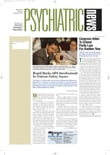President George W. Bush signed legislation in November allowing hundreds of additional foreign-born physicians to practice in underserved areas after completing residency training in the United States.
The provision is part of a Department of Justice Appropriations Authorization Act (HR 2215), which both the House and Senate passed by wide margins earlier this year.
Under the new law, state health departments can increase from 20 to 30 the number of J-1 visa waiver recommendations for foreign-born physicians who wish to practice in underserved areas of the United States.
Under the Conrad State 20 program, medical facilities in participating states have been able to request 20 waivers a year for physicians practicing in rural areas or inner-city neighborhoods, where there are far too few physicians to meet treatment needs.
Sen. Kent Conrad (D-N.D.) launched the Conrad State 20 program in 1994 as a pilot project that extended waivers for foreign-born doctors who obtained their J-1 visa status by last June 1. The new legislation has extended that date to June 1, 2004. Forty-nine states now participate in the program, with Oklahoma being the exception.
Regulations upheld by the Immigration and Naturalization Service (INS) require foreign-born physicians to return to their countries of origin for up to two years after completing a residency in the United States. After that two-year period, the physicians may attempt to return to the United States after applying for another form of immigrant visa.
In inner cities or rural areas, however, certain government agencies can request a waiver that would allow the physician to stay in this country if he or she agrees to practice in the underserved area for at least three years.
The U.S. Department of Agriculture (USDA) played a role as an “interested government agency” by providing recommendation letters on behalf of foreign doctors and their prospective employers to the Department of State, which reviewed the applications to ensure that they met federal standards. The INS then granted the J-1 visa waiver to the physician.
However, in late September 2001, the USDA ended its participation in the waiver program due to security concerns stemming from the terrorist attacks on New York and Washington, D.C., causing concern among many in the medical community (Psychiatric News, May 17).
That’s precisely why the move to increase the number of waivers for foreign-born physicians in each state is embraced by psychiatrists such as Godehard Oepen, M.D., chair of APA’s Committee on International Medical Graduates. “This new legislation is a wonderful change,” he said. ▪
